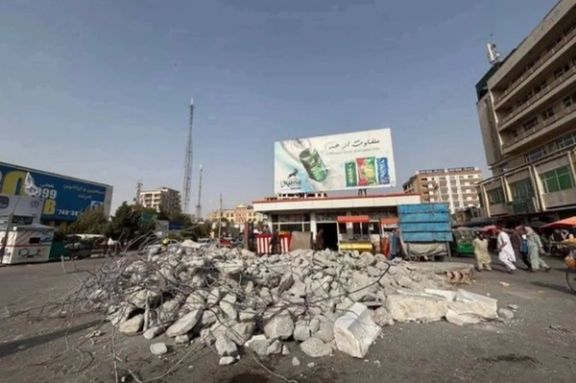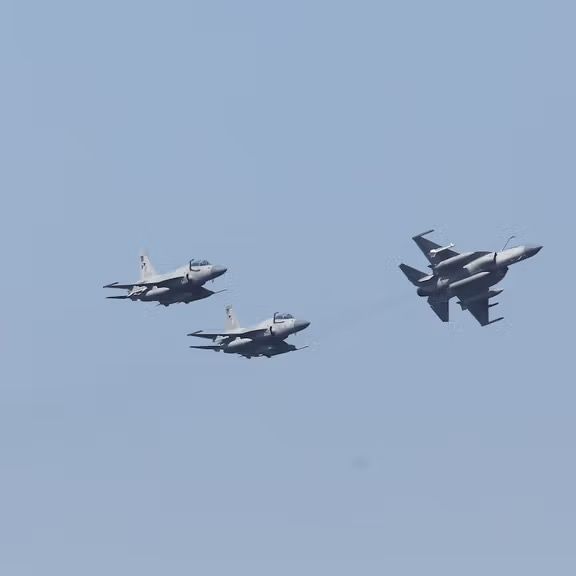US officials emphasised that the roots of failure in the war lay in strategic weaknesses rather than tactical shortcomings.
The Afghanistan War Commission is an independent body established by the US Congress in 2021.
Dependency of Afghan Institutions
According to the report, despite US policy promoting the independence of Afghan institutions, they remained overly dependent. This outcome contradicted Washington’s stated plan. The Commission noted that US financial, technical, and security assistance was delivered through mechanisms that, whether intentionally or not, fostered dependency within Afghan institutions. Yet, US policy had identified Afghan self-reliance as a key condition for ending the war.
The report added that capacity-building methods, often relying on parallel delivery systems led by contractors, US agencies, and military units, sidestepped Afghan officials. This approach may have weakened Afghanistan’s sovereignty and contributed to lasting institutional fragility.
The Commission is examining how, with the beginning of the US troop withdrawal, this institutional dependency affected the situation. According to the report, the same reliance was evident in Afghanistan’s security institutions, which depended on external support systems and lacked the ability to operate independently.
As peace talks in Doha began, the US gradually reduced support to Afghan security forces, undermining their ability to confront the Taliban.
The Late Start of Peace Talks
The report also addressed the failure of peace negotiations. Talks with the Taliban, it said, began far too late, only after the US had already minimised its troop presence. By then, Washington no longer had the leverage needed to pressure the Taliban.
The report recalled that in the early years of the war, the US viewed the Taliban and al-Qaeda as inseparable. It pointed to missed opportunities to engage the Taliban after their removal from power.
Overall, US policy in Afghanistan was described as ambiguous: the US initially invaded to fight terrorism and destroy al-Qaeda but soon shifted to state-building. At first, Afghans welcomed US involvement, but over time dissatisfaction grew.
Pakistan’s Double Standard
Citing former Afghan and US officials, the report highlighted Pakistan’s double standard. While Islamabad cooperated by opening transit routes for US forces and suppressing al-Qaeda, it consistently denied the existence of Taliban sanctuaries on its soil throughout the 20-year US presence. This undercut counterterrorism efforts and thwarted international objectives in Afghanistan.
The Commission referenced President Joe Biden’s justification for the US withdrawal, questioning: if the US could ensure its security without a military presence in Afghanistan and prevent another 9/11-style attack, why did it support the Afghan government for two decades?
According to the report, the decision to withdraw eroded Afghan forces’ confidence, emboldened the Taliban, and, with Ashraf Ghani’s flight, allowed the Taliban to seize Kabul without firing a shot.
After deciding to withdraw fully, Biden stated that the threat from Afghan soil had been neutralised, arguing that the US could pre-empt threats without maintaining troops in the country.
Afghan and US Perspectives
The Commission interviewed dozens of former Afghan and US officials. Afghans told the Commission that in the early years, the international presence created hope for training and progress, but this optimism later faded. They believe the US avoided key steps to sustain the Afghan state, especially by failing to pressure Pakistan, which used the Taliban as a proxy force.
They added that after 9/11, US policy viewed Afghanistan as an “ungoverned space” and overlooked existing local governance structures, such as community councils, in favour of a centralised model. Early Afghan optimism was replaced with the perception of “America’s war,” as dependency deepened. Deeper issues, such as national identity, political Islam, and governance models, were never meaningfully addressed. Reforms often catered more to international optics than Afghan needs, ignoring local experiences, especially in areas like women’s rights.
Conflicting Priorities
According to the report, military priorities often clashed with the missions of USAID and the State Department, undermining a whole-of-government approach. Within the Department of Defense and among allies, the lack of a unified command structure, unclear end goals, and contradictory missions, ranging from counterinsurgency to counterterrorism, allowed regional commanders to shape priorities more than any coherent top-down strategy.
Political Division and Fragility
The report also addressed corruption, political disunity, and public discontent. The 2014 presidential election sowed division and doubts about the legitimacy of the future government, prompting significant US diplomatic intervention.
Highlighting the ambiguity of US policy, the report noted that while the United States reduced both its military and civilian presence, it simultaneously signed agreements pledging long-term support to Afghanistan. Some US civilian and military officials said that in the United States the mission in Afghanistan was either never fully understood or forgotten.
Systemic Corruption
The report stated that corruption and impunity became defining features of the post-Taliban government, fuelling widespread public discontent. Civilian casualties from US night raids and airstrikes further inflamed anger.
For two decades, Afghanistan ranked among the most corrupt countries in the world.
Douglas Lute, a former US official, said: “I believe the roots of our failure in Afghanistan lay at the strategic level, not at the tactical level where our troops, intelligence officers, diplomats, and development officers on the ground sacrificed in the toughest conditions.”
David Sedney, former Deputy Assistant Secretary of Defense for Afghanistan, Pakistan, and Central Asia, said: “We sought an Afghanistan that would not be a home for terror, one where Americans and our allies would be safer, and in which the Afghan people would have the future they deserved.
He added: “For why we failed there is no simple, easily identifiable answer. There is no single villain. There is no one policy error, which, if gotten right, would have led to success.”
Terror Groups Regrouping
Four years after the US withdrawal, according to independent international organisations, Afghanistan has once again become a safe haven for terrorist groups. Recently, UN experts warned that ISIS-Khorasan poses a serious threat to the US and Europe. Al-Qaeda, the Taliban’s ally and the original cause of America’s 20-year war in Afghanistan, is attempting to regroup and revive itself.

